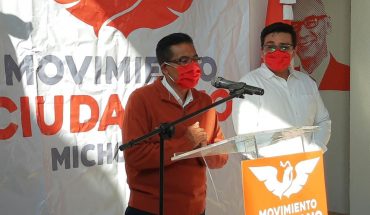2021 has been the year in which more states of the Republic have been painted green after the approval of the decriminalization of abortion up to 12 weeks of gestation.
There are currently six states that have made progress on this issue; however, 26 entities still do not approve this issue.
On the first of December, Colima became the sixth entity to decriminalize abortion up to 12 weeks, with a vote of 12 in favor, 5 against and 4 abstentions.
With this, the state joined Mexico City, Oaxaca, Veracruz, Hidalgo and Baja California.
The initiative approved in Colima includes two circumstances for legal abortion: when an authority denies abortion to a woman prior to 12 weeks of gestation and when health personnel fail to inform her about her right to terminate the pregnancy within that period.
The approved bill gave greater penalties to forced abortion, now they will be 3 to 15 years in prison and a fine; the penalties for health personnel who perform consensual abortions were eliminated, and the criminalization of pregnant people who are in danger of death or serious damage to health or for serious alterations of the product.
Read: Accompanying abortions is not a crime, abortion should not be either, responds doctor denounced in Puebla
In addition, with the approval of this initiative by the state Congress, the termination of pregnancy was guaranteed in the face of conscientious objection of medical personnel.
On October 29, the Baja California Congress approved a series of reforms to decriminalize abortion up to 12 weeks gestation.
The decision came after the vote on two opinions: one to reform the local constitution and remove the “life from conception” clause, which was not approved because it did not reach a qualified majority.
However, the second ruling, which reforms the Criminal Code of Baja California, as well as the Victims Law and the Health Law that decriminalizes the interruption of pregnancy, up to 12 weeks, was approved by a simple majority.
Another entity that was painted green this year was Veracruz.
On July 20, the state Congress approved the decriminalization of abortion up to 12 weeks. MEPs voted on the opinion in general and in particular with 25 votes in favour.
Days earlier, on June 30, the Hidalgo Congress had done the same with the initiative to reform the state Criminal Code and the Health Law, and allow the Legal Interruption of Pregnancy (ILE) at 12 weeks of gestation.
Never again jail time for abortion
On September 7, the Supreme Court of Justice of the Nation (SCJN) declared unconstitutional the criminalization of abortion for women and people with the capacity to gestate.
This means that no judge will be able to imprison anyone who decides to have an abortion.
The Plenum of the Court invalidated Article 196 of the Criminal Code of the state of Coahuila, which imposed a penalty of up to three years in prison on the pregnant person who had an abortion, or on the person who helped him with his consent.
The minister president, Arturo Zaldívar, said then that the decision not only invalidated the rules that were discussed, but also established a “mandatory criterion for all judges in the country.”
Although, he explained, it did not mean that abortion will be decriminalized in all entities, only those who decide to have an abortion can no longer be imprisoned anywhere in the country.
Read: At the age of 14, Sara managed to terminate her pregnancy in Mexico City and not risk her life
Another advance that was achieved in reproductive matters was on July 7 when the Supreme Court declared as unconstitutional article 181 of the Criminal Code of the State of Chiapas, which considers abortion as a crime in cases of rape, if it is requested after the first 90 days of gestation.
This, after analyzing the case of a minor with cerebral palsy who was denied the interruption of pregnancy in Chiapas, despite the fact that she was a victim of rape.
Decriminalization yes, but with slopes
Despite the fact that Oaxaca became, in 2019, the second state to decriminalize abortion that was punishable by six months to two years in prison, the reality for women in the state who want to terminate their pregnancy has changed little.
Animal Político published that there are only two public clinics that perform it and without attention to indigenous women
According to the Health Services of Oaxaca (SSO), 962 medical units operate throughout the state between mobile, fixed, first and second level, however, if a woman wishes to exercise her right to legal interruption of pregnancy (ILE) she can only do so in two places: the General Hospital “Aurelio Valdivieso” and the Women’s Clinic, both located in the state capital.
In addition to the stigma and moral discourses andEligious people they receive from the doctors they approach to request support are present obstacles, despite the change in the law.
This year, Mexico City marked the 14th anniversary of the approval of the Legal Interruption of Pregnancy (ILE) until the 12th week of gestation.
Read: Reproductive justice: a decade of progress and pending
Since legalization in 2007 until June of this year, 237,643 Legal Interruption of Pregnancy (ILE) procedures have been performed in the city.
Quintana Roo halts decriminalization of abortion
In contrast to the advances that have been made during this year, in March, the Congress of Quintana Roo rejected the ruling with reforms for the decriminalization of abortion.
The proposal stated that “Quintana Roo recognizes, protects and guarantees the right to life of every human being, except for the exceptions established by law”; however, it only obtained 7 votes in favour.
What we do at Animal Político requires professional journalists, teamwork, dialogue with readers and something very important: independence. You can help us keep going. Be part of the team.
Subscribe to Animal Político, receive benefits and support free journalism.#YoSoyAnimal





